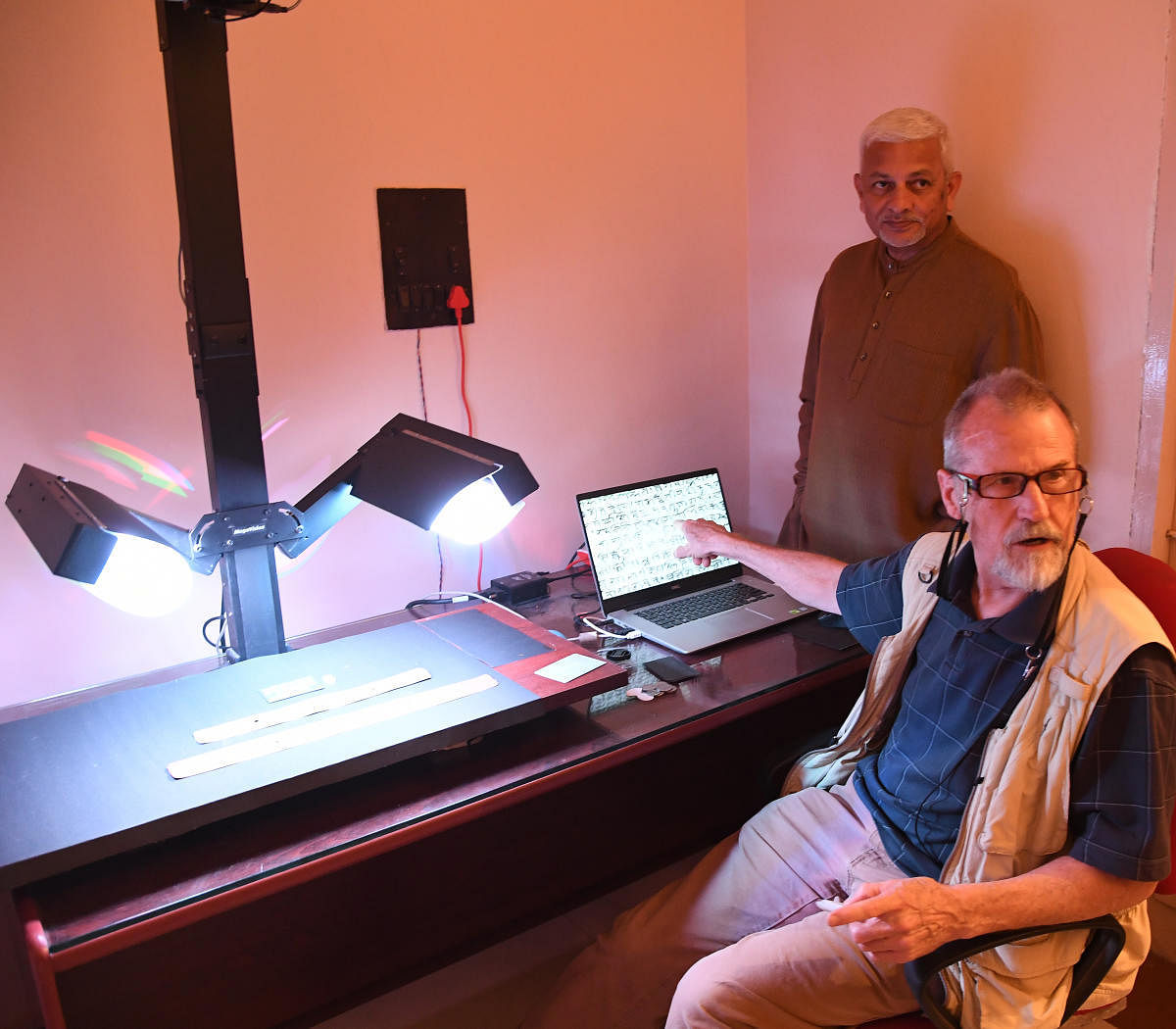
Manuscripts on palm leaves rendered illegible can now get a new lease of life, thanks to state-of-the-art technology.
Prof P R Mukund, an engineer from Bengaluru, has joined hands with an US-based expert to conserve ancient palm-leaf manuscripts affected by rains, those that have nearly decomposed over the years or those affected by fungus.
Mukund and his team from Tara Prakashana and digital imaging expert Ken Boydston believe that all ancient manuscripts can be restored and conserved using technology.
Mukund is in the process of creating a library for manuscripts on Vedic studies and religious teachings. Over 3,000 manuscripts have been collected, processed into images and compiled into books. However, the damages to about 30% of the ancient manuscripts, which were nearly illegible, posed a challenge. The engineer has joined hands with Ken Boydston of the US. He has designed a camera customised to be able to resolve this. A mega vision multispectral imaging system is being deployed to read scriptures that have nearly been corroded.
“We have, in the past, created devices sketched maps from ancient scriptures. I have worked in Jeruselum and UK for the same. This is a first-of-its-kind attempt in India,” said Boydston.
What is otherwise an illegible patch on a palm leaf is put under the camera, which, with the help of infrared radiation, reads the script.
The scriptures were then printed on archival paper and made into books. Yet another technology has been used to preserve this, using photolithography, on silicon wafers in a miniature form. “This is a patented technology and is water- and fire-proof. Going forward, even if the books do not last, these could come in handy,” Mukund said.
To begin with, the team is working on preserving the writings of Dwaita philosophy proponent Madhwacharya and comments on his works.
“We are working with the eight mutts in Udupi. Initially, it took efforts to gain their trust. Now, they are forthcoming to help us preserve these. We collect, scan and return them back. So far, work is on to preserve manuscripts from the collections at Sondha and Pejawar mutts,” said Mukund.
Out of the 3,000 manuscripts, 500 have been compiled into books. “In the next four years, we hope to have a Vedic library, most probably in Udupi, where 5,000 such manuscripts will be kept. It will be open to all,” he added.